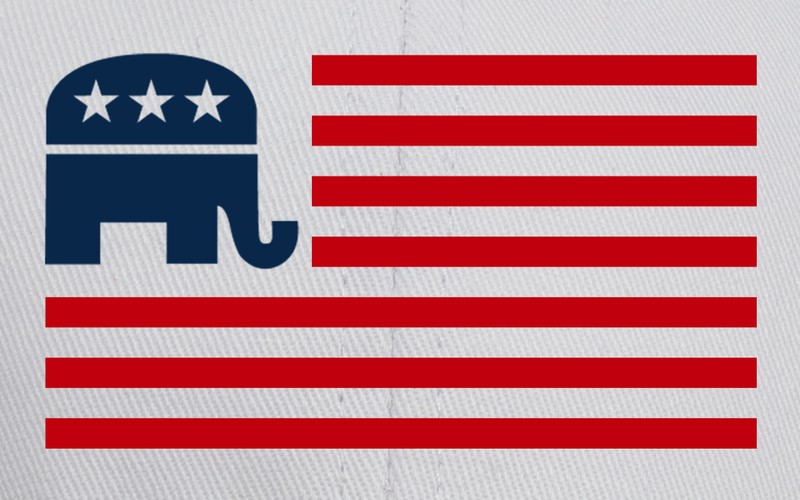The former president won 98 of 99 Iowa counties Monday, the biggest win in caucus history, CNN reported.
It’s not uncommon to see candidates suspend campaigns following Iowa and New Hampshire – scheduled for Tuesday – which have long been the first two primaries of the presidential election season.
Newcomer Vivek Ramaswamy and former Arkansas Gov. Asa Hutchinson have already left the race. Ramaswamy delivered what he called an “America First” message with youthful exuberance and endeared many conservatives for his aggressive debate style and the way he challenged legacy media in press availabilities. Those social media clips went viral.
Still, it all added up to just 7.7% of the Iowa vote for Ramaswamy. Hutchinson managed just 191 votes for 0.2%.
Trump took 51% of the vote Monday night.
According to CNN, 11 major candidates competed in the GOP field in Iowa in 2016, and it was just more than 90 days before Trump was the lone candidate. (The network says it defines major candidates as those receiving more than 1% of the vote.)
In his re-election bid in 2020, Trump faced very little Republican opposition.
“There are really two strategies as I see coming out of this. Donald Trump is hoping to make this primary season as short as he can, really wrap this thing up so he can focus on the general election. Ron DeSantis and Nikki Haley are both jockeying for that second position if you will. They’re trying to make this a two-person race. They really want this thing to go as long as it can, hoping it can become a two-person race and one of them can pick up a little more traction down the road,” Brent Keilen, Family Research Council Action’s vice president for strategic initiatives, said on Washington Watch Tuesday.
Florida Gov. Ron DeSantis finished second in Iowa with 21.2%, followed by former South Carolina Gov. and former U.N. Ambassador Nikki Haley at 19.1%.
Keilen told show host Tony Perkins that Haley is polling well for New Hampshire.
Trump leads in New Hampshire with an average of 44.4% in a compilation of available polls. Haley is second at 31.4%, and DeSantis is a distant third at 5.3%.
The evangelical vote went strong for Trump in Iowa in spite of the fact that two of the state’s strong conservative voices – The Family Leader President Bob Vander Platts and Gov. Kim Reynolds – both endorsed DeSantis.
“These evangelicals and born-again Christians made up 55% of the Iowa caucusgoers, so a majority, and of them a majority supported Donald Trump. That was 53%,” Keilen said.
“The next-highest was Ron DeSantis, and he received 27% of that. Just interesting to see where this voting bloc is, what they said when they went to those caucuses last night. This is a group we’re going to be hearing a lot about in the months to come in 2024,” he said.
What can we tell from evangelical vote?
The evangelical vote is also starting to get more play in media coverage, though it isn’t flattering coverage.
“Trump has in some ways become religion for a certain section of the American electorate and especially for evangelicals," MSNBC show host Alex Wagner said in her Monday night primary coverage. "It’s not about the virtue anymore. It’s about the vice that Trump expresses, and I think you see that playing out in Iowa where the evangelical vote is key. It is essential to what is going to unfold tonight. It is very much a group of people that find in some ways that Trump is a Second Coming.”
A CBS poll listed immigration as the top concern among Iowa evangelicals at 40%, followed by the economy at 35%. Foreign policy and abortion were next, both at 11%.
Most Iowa Republican voters said they favor a nationwide ban on all or most abortions. Those voters went with Trump first, DeSantis second, the poll said.
“The under 40% that did not support national pro-life protections, Trump still won that group. The margin wasn’t as high, I think he had about 42%, but Nikki Haley was actually the one at a close second there, about 37%,” Keilen said. “So a lot of pro-life voters yesterday, and it was interesting to see what they said and how they felt about the candidates.”
The Los Angeles Times speculated earlier this week that New Hampshire could be Haley’s last best chance to beat Trump in a primary race because of the prominence of GOP moderates in the state.
Can Trump attract more GOP moderates?
The moderate Republican vote is the category that could be a thorn for Trump in the General Election. A Suffolk University poll of New Hampshire voters found that few would be willing to shift to the former president should their first choice fail. Only 6.72% listed Trump as a second choice.
Trump did well with first-time caucusgoers in Iowa, which could signal a campaign strategy focusing on new voters.
“There were 110,000 (who attended caucuses). That didn’t approach the record-high of 187,000 back in 2016, but the couple of elections before that were about 120,000, so it was about average historically if you take a look back, and again, we’re talking about historic lows in terms of the temperatures, so people were very engaged in Iowa,” Keilen said.














